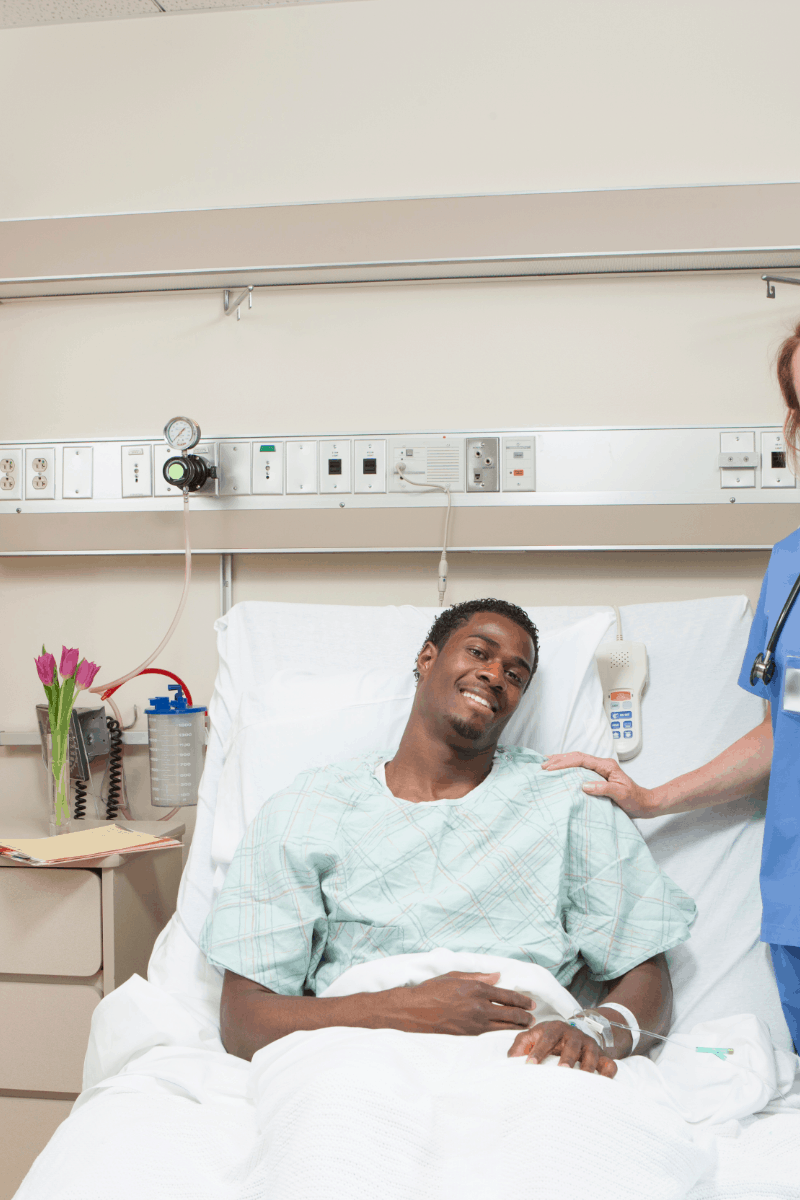Although emergencies are rare, sometimes your exchange student might need some medical care. This could be something as minor as a broken toe or as major as injuries from a car accident. No matter the circumstances, your international educational travel program will have taken care of all the legal documents you will need to get your exchange student medical care. Exchange students and their parents have to sign many papers including a medical release form before the student is allowed to leave their home country. This form will give you permission to make medical decisions for your student.
Before leaving for the United States, most programs will also encourage or maybe even require the exchange student to have a physical exam. This is to make sure the student is in good health and able to both physically and mentally handle a year of study abroad.
Does My Exchange Student Need Medical Attention?
Treat your exchange student like you would your own child. That means making sure that they eat, get proper rest and get daily exercise. Even if you do all that, your student might become ill. Like with your own child, it’s hard to know whether they need immediate medical attention. When deciding whether to seek medical attention for their problem, think about what you would do if it were your natural son or daughter. If it is not urgent, you can also call the local representative to get their advice. Be careful about contacting the natural parents though as you don’t want them to worry unnecessarily.
Medical Coverage for Your Exchange Student
The international student exchange program with which your student is enrolled will provide your student with a health insurance policy. These are typically global insurance policies that cover all of your student’s medical needs from basic physical exams to emergency care. Evacuation coverage for medical emergencies such as the pandemic, Covid-19, is also provided with the policy.
Many students will also have supplemental insurance with their parents’ medical policy. This should cover any gap in insurance. If there is still a bill after they apply the insurance, it is the responsibility of the natural parent. Remember, under no circumstances will they hold you accountable for the medical bills of your student. Ask the program to see the insurance policy so you will know what is and is not covered. If you have questions about the policy, ask your local program representative.
Taking Your Exchange Student to the Hospital
Unfortunately, an emergency could occur with your exchange student. Whether they are injured while playing a sport or become gravely ill because of a disease, sometimes it is necessary to take an exchange student to the hospital. After getting the student registered, you must contact the local representative of your exchange student program. He/she will probably contact the student’s parents for you.
You’ll want to stay in the hospital to answer questions and be there to make your exchange student feel safe. Once they are released, you’ll be given medical instructions for aftercare. If you’re unable to meet the needs of the student, it is important that you let your local representative know.
If your student has a serious condition such as cancer or heart disease, it might cut their homestay short. The exchange student program along with the natural parents will decide whether the student should continue their studies here in the United States. Should this happen, they will wait until the student is safe to travel. Other travel arrangements might also be made to ensure the student’s safety.
Immunizations for School
Immunizations for school-age students vary by state and definitely by country. Your exchange student program is aware of this and will have made sure your exchange student has the shots and immunizations that are required by your school district. In some rare instances, you may find out your student is missing one or two vaccinations. If so, it is possible to get these shots at your local health department or a community clinic where they can get them for free. If not, you might have to arrange an appointment for your student with a primary care physician.
Physical Exams for Sports
If your student wants to play school sports, they will require a physical exam. Some schools will arrange onsite physical exams at the school. If they do not, you can schedule your student for a check-up with a local physician. You might have to explain to the student the reason for the exam and what the doctor is looking for. Before leaving the house, make sure your student has the school form with them for the doctor to sign.
Getting Your Exchange Student Dental Care
Routine check-ups like teeth cleanings or cosmetic care are not typically covered under the student’s medical insurance policy. Emergency dental care, however, is covered. This includes procedures like tooth extractions or an abscessed tooth.
Having an exchange student is an added parental responsibility. Because this is not your natural child, you’ll have to have a crash course in their medical history. Your exchange student program should have a medical data sheet that will provide you with the basic information you need. Still, take the time to talk with your student and ask them questions about things like allergies or preexisting ailments. This could help you to avoid a potential emergency.
Further, make sure you are prepared for an emergency by knowing where to find your student’s paperwork. Keep a copy of their medical insurance card and information in a file that you can get to quickly. Additionally, always have the phone number of your local representative, regional director and the corporate offices of your exchange student program stored in your phone. Finally, know how to get in touch with your student’s natural parents if needed.
Hopefully, your exchange student will have an illness and injury-free homestay.


